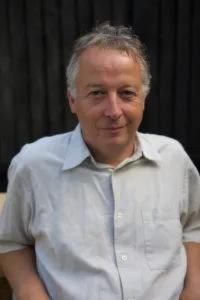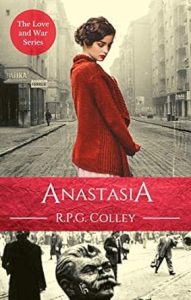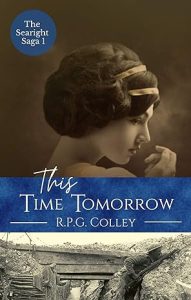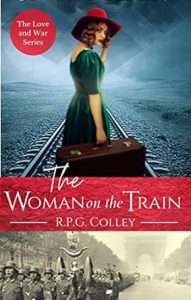 Today I’m delighted to welcome historical author Rupert Colley to my website.
Today I’m delighted to welcome historical author Rupert Colley to my website.
Rupert was a librarian for many years. He then wrote the non-fiction series History in an Hour which he sold to HarperCollins UK. He now writes historical fiction, which he describes as, “mainly 20th century war and misery.”
He lives in London with his wife, two children and dog, a fluffy cockapoo.
From the trenches of World War One, via Stalin’s Russia, World War Two and post-war Hungary, your novels paint a vivid picture of 20th-century European history. Apart from the historical events themselves, what do you most hope to convey in your books?
 I look at people who were the victims of these moments in history and also those who benefited. For example, in Anastasia, set in post-war Hungary, one of the main characters works for the secret police.
I look at people who were the victims of these moments in history and also those who benefited. For example, in Anastasia, set in post-war Hungary, one of the main characters works for the secret police.
What does your research and writing process for fiction look like? How do you get from a blank page to a finished novel?
 I read an awful lot – especially memoirs of people who lived through some of these difficult times. And, using a spreadsheet, I build up a list of characters and start thinking about the obstacles I’m going to place in front of them.
I read an awful lot – especially memoirs of people who lived through some of these difficult times. And, using a spreadsheet, I build up a list of characters and start thinking about the obstacles I’m going to place in front of them.
I take a while to prepare but once I start writing, I become quite obsessed and work at an almost frantic pace.
As an indie author, what advice would you give to other aspiring writers?
 Adopt a professional attitude, see it as a business and be prepared to spend money.
Adopt a professional attitude, see it as a business and be prepared to spend money.
You need to get your manuscript professionally proofread and edited, don’t skimp on a good cover and, finally, get your metadata right.
Who are your favourite historical fiction authors?
 Contemporary authors: Helen Dunmore, Rose Tremain, Robert Harris and Jessie Burton.
Contemporary authors: Helen Dunmore, Rose Tremain, Robert Harris and Jessie Burton.
Older authors: Irene Nemirovsky, Stefan Zweig, Victor Serge and Hans Fallada.
What are you currently working on and what are your publication plans?
 I’m currently planning what I’m calling my ‘Master Race’ trilogy, starting in Germany in about 1930, the first part will take us to Kristallnacht in November 1938. It’s an ambitious project and, frankly, I’m a little nervous!
I’m currently planning what I’m calling my ‘Master Race’ trilogy, starting in Germany in about 1930, the first part will take us to Kristallnacht in November 1938. It’s an ambitious project and, frankly, I’m a little nervous!
What do you like to do when you’re not writing?
Read lots of books, both fiction and non-fiction, and most mornings I start the day by walking the dog! It helps clear the mind.
Thanks Rupert, that was great!